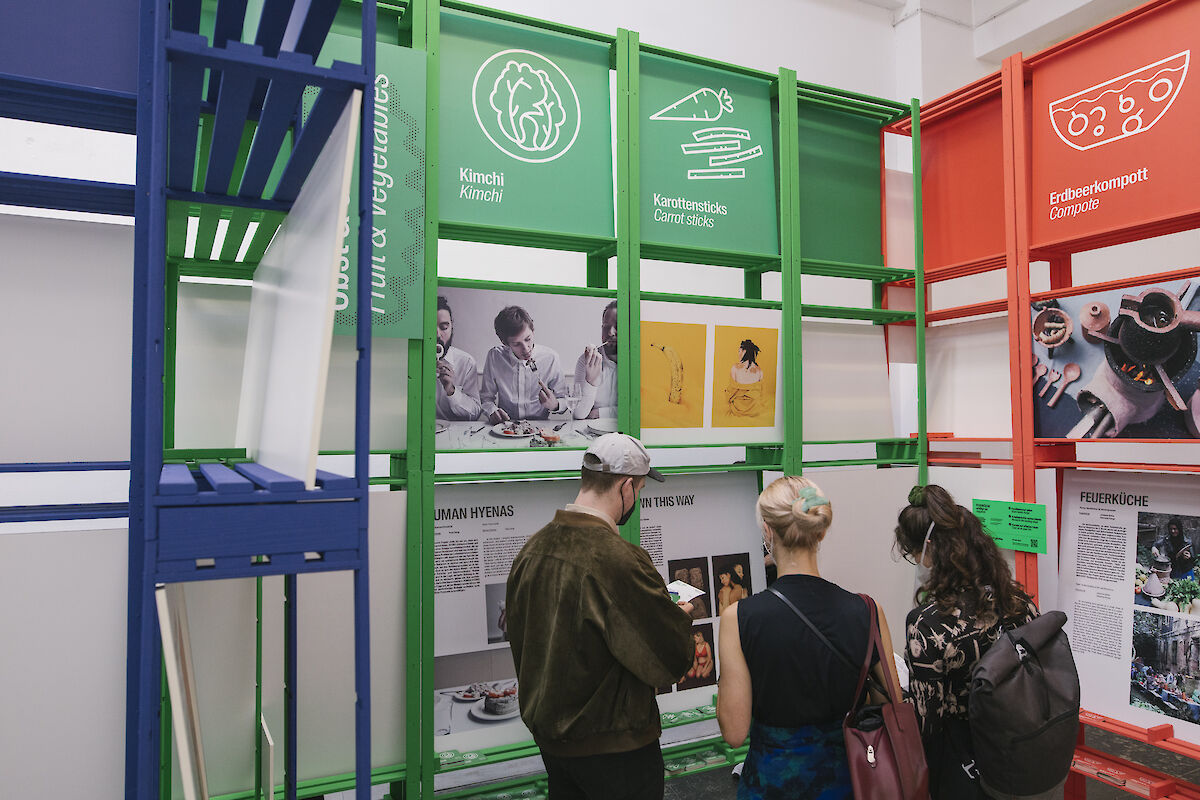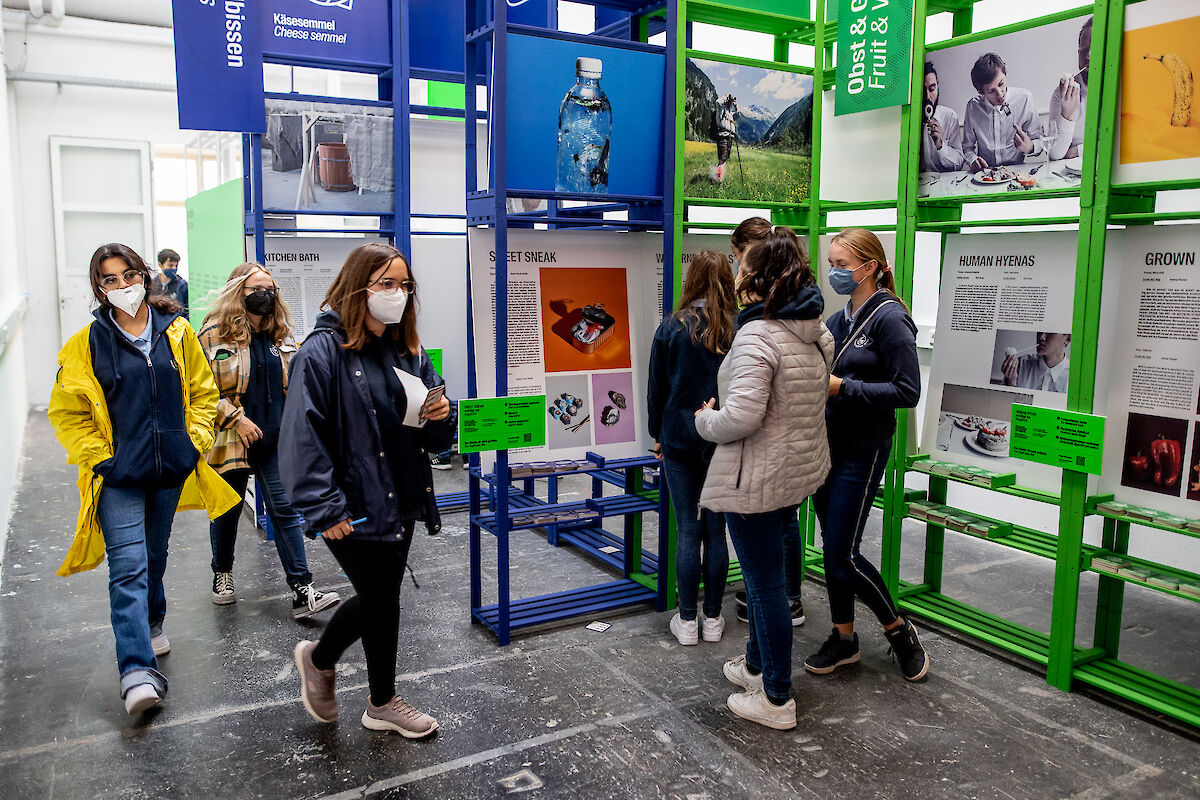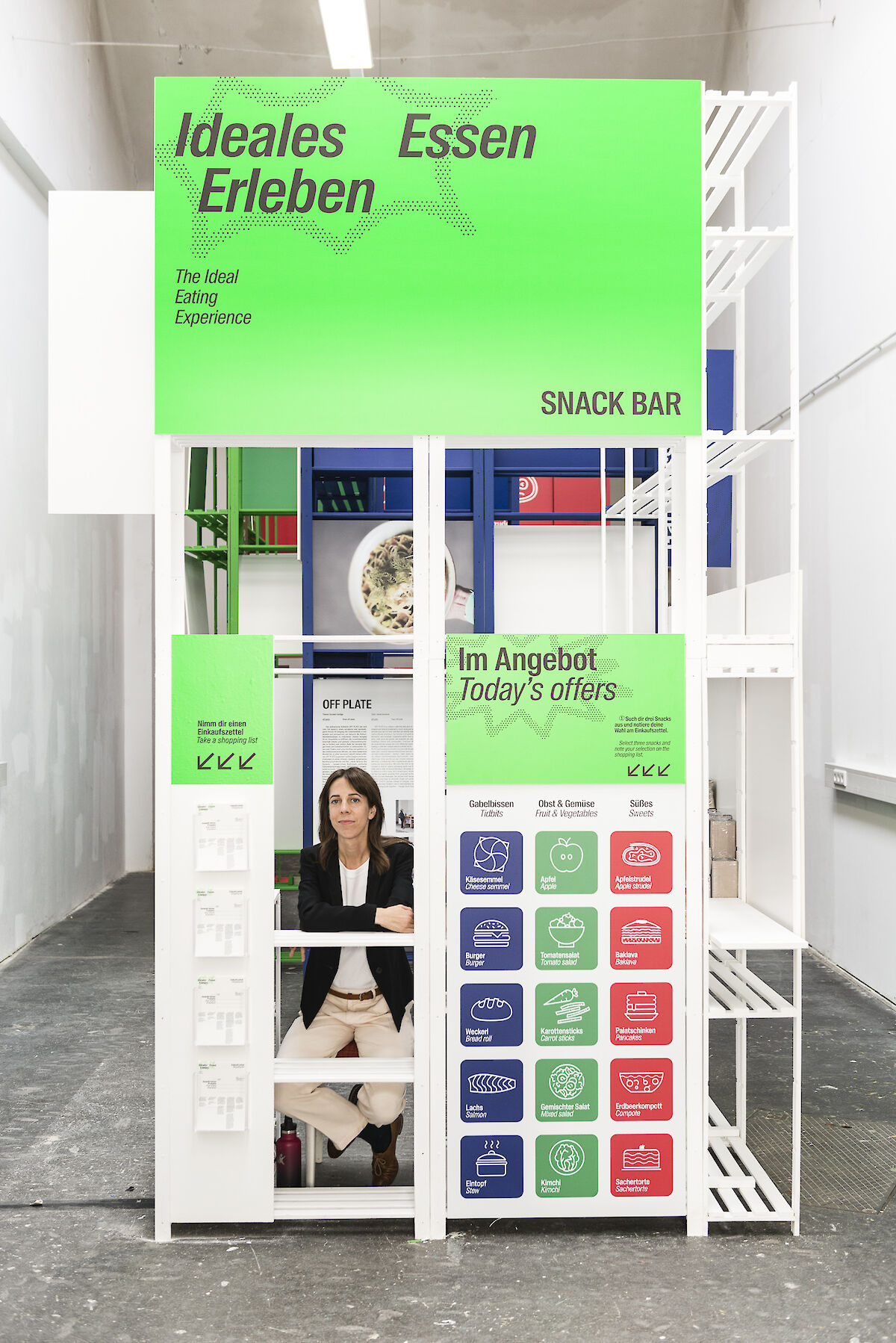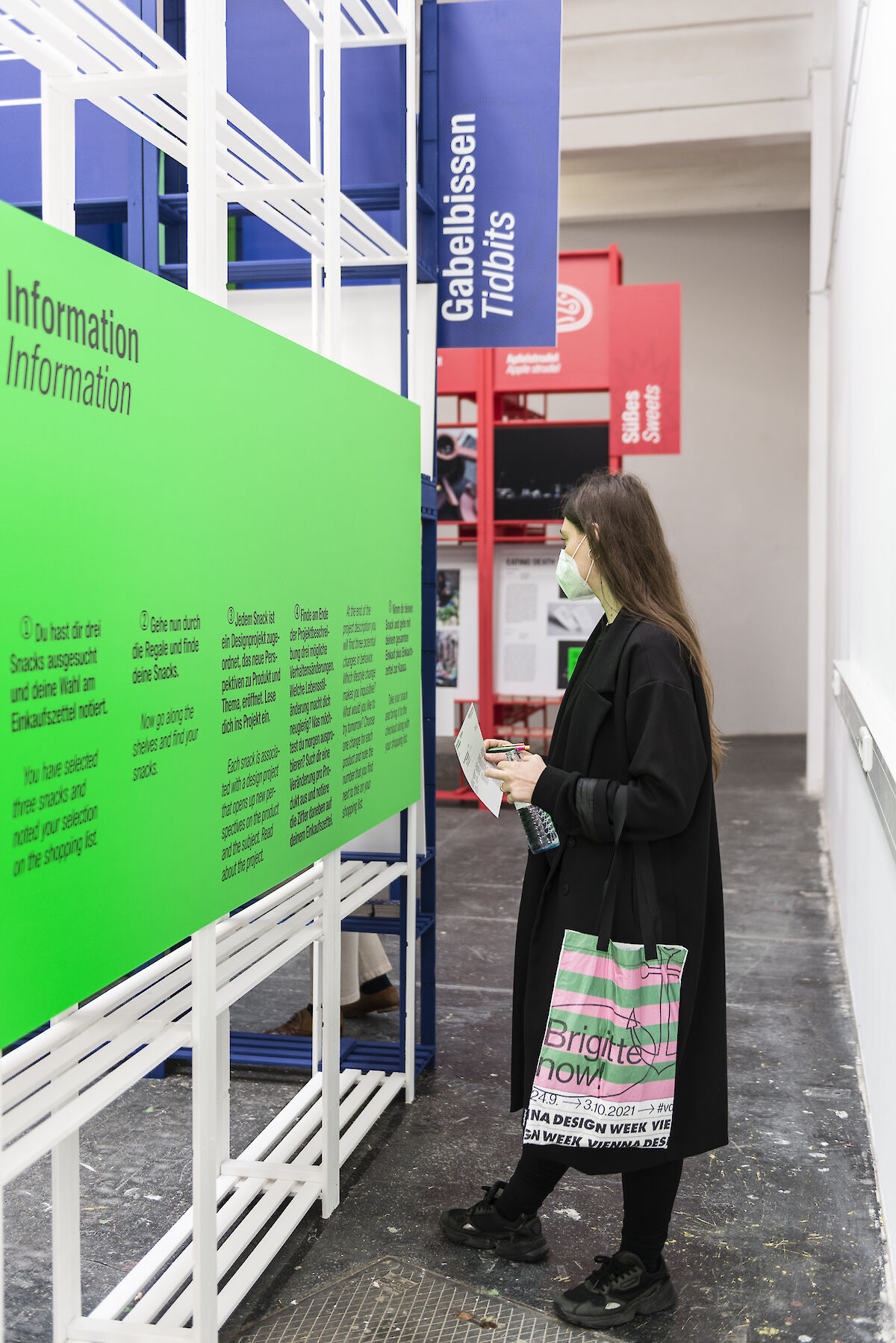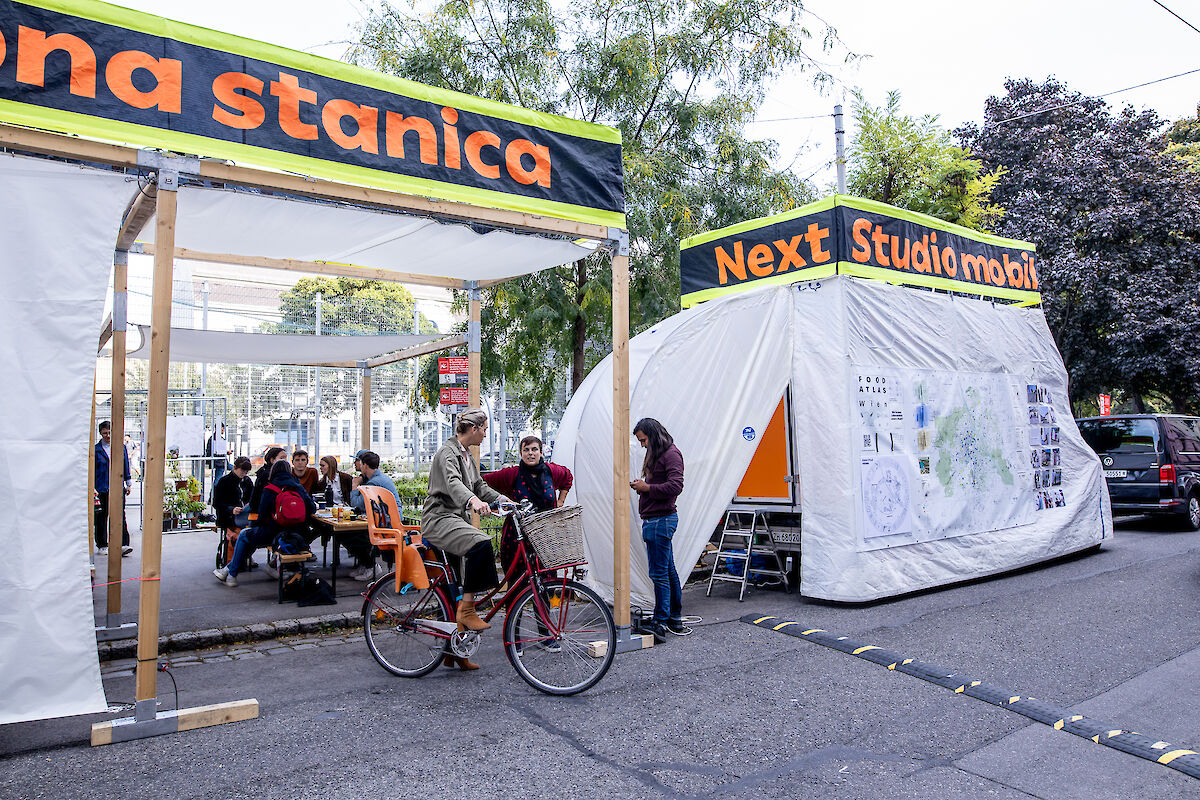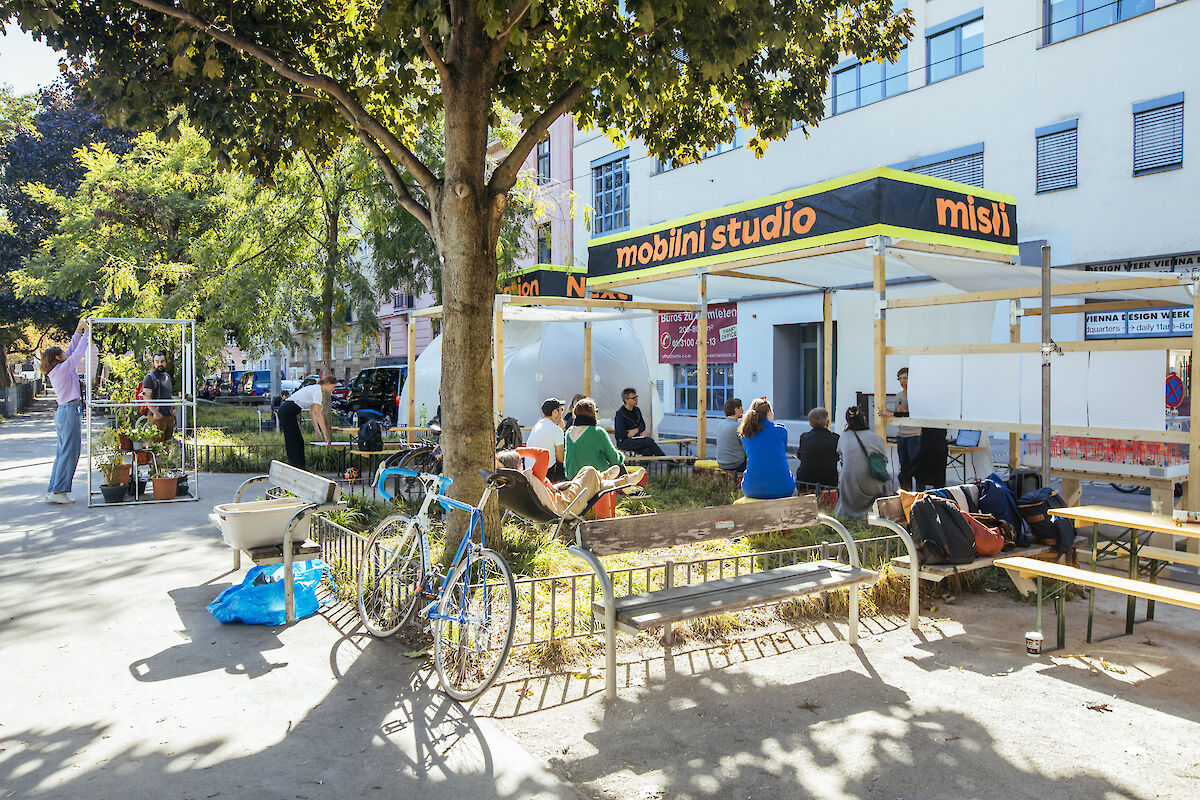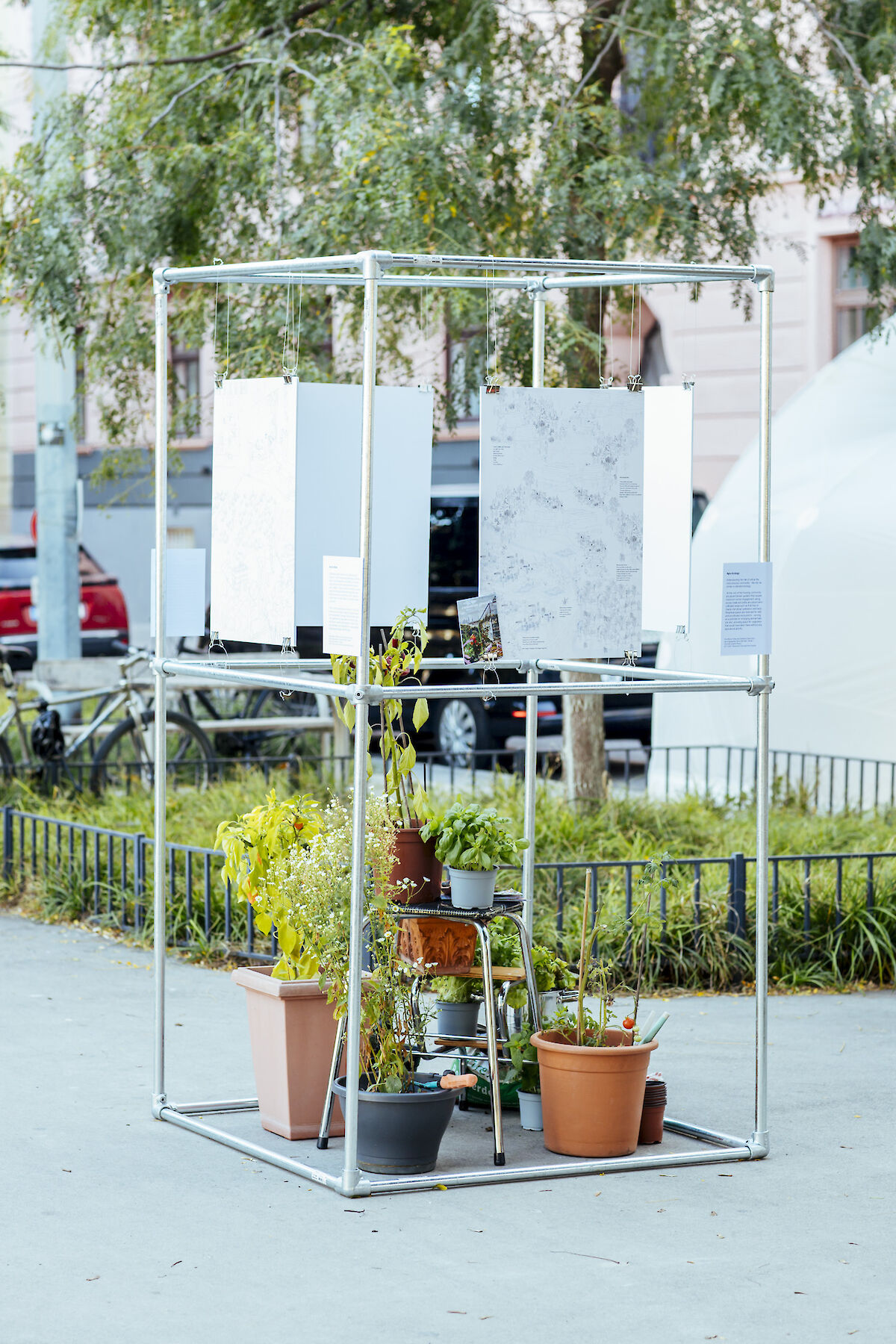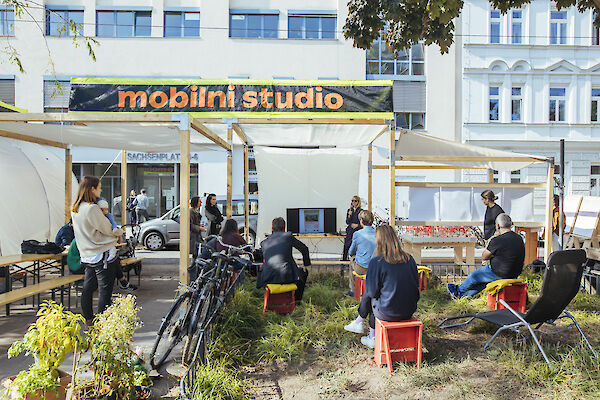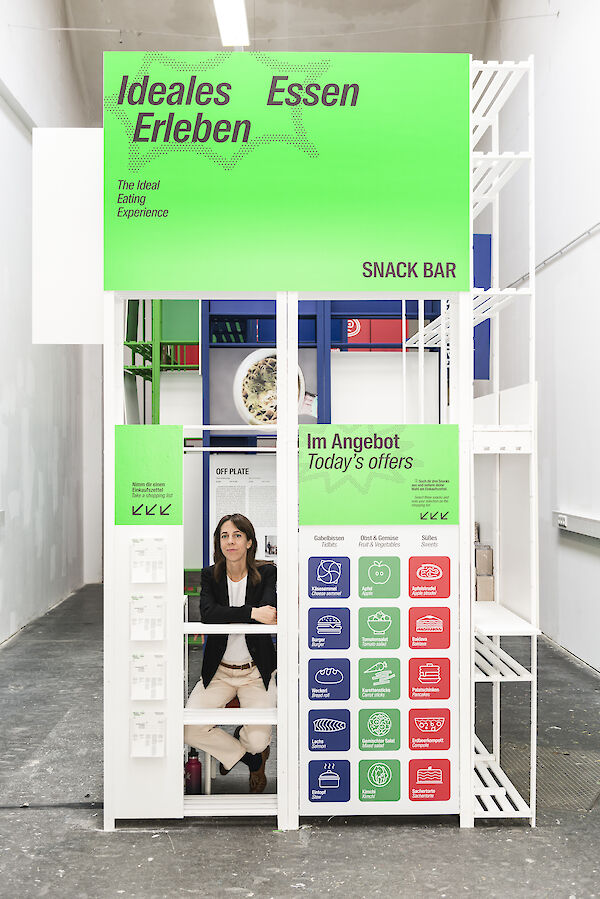Reviews: 2021
URBAN FOOD & DESIGN 2021
During the pandemic, shops that serve our everyday needs have become a well-worn phrase. We have become more widely aware than ever of the major impact of such areas as food production, distribution, and consumption on our (urban) co-existence, especially with a view to a climate-friendly future. In 2021, for the fourth time in a row, the VIENNA DESIGN WEEK and the Vienna Business Agency cooperated closely by organizing the format Urban Food & Design, which this time had a special focus on our shopping behavior.
Building upon the Vienna Business Agency's central theme “Let’s Talk Food”, the heart of the format was an interactive exhibition curated by Kathrina Dankl, which built upon the Urban Food & Design challenges of the previous three years. It combined and playfully presented thematic clusters from new sources of food, consumption patterns, and forms of delivery, to the circular economy, and social participation. In this supermarket of ideas, complex solutions shared the shelves with concrete food for thought and proposals for action that were directly aimed at visitors to the exhibition.
The joint Vienna Biennale for Change 2021 project of the Vienna Business Agency and the MAK also stopped in front of the Festival Headquarters on Sachsenplatz for three days and nights in the shape of the nomadic agora studio mobil / think tank station. Under the title EAT LOVE, workshops, talks, livestreams, and other events invited visitors to take an imaginary journey through a different Vienna. Projects involving ecological and socially sustainable solutions related to the food and food spaces of tomorrow played the central role.
